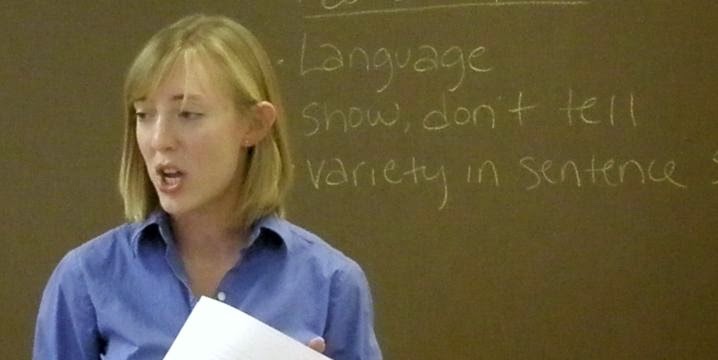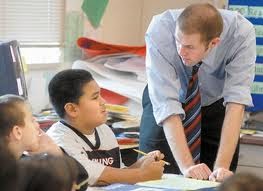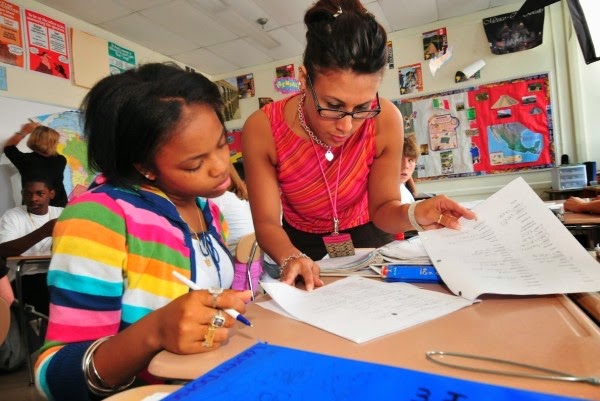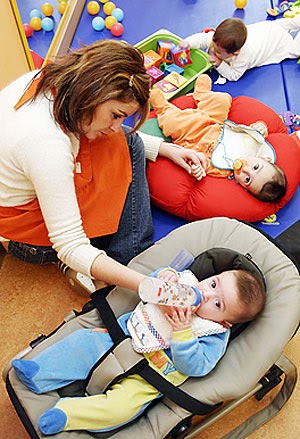1691. You work with human people

Remember that you have people, persons, in your hands: what a responsibility! You influence on them, and whatever and however you do things will influence on their lives forever. You don’t just have students to learn English but human people influenced by you forever. I don’t want you get over-worried, just let you know about our responsibility. What you do in classes, at tutoring sessions with each kid, even what you do in your private life, all that influence on their lives. And the point is positive: you can really educate them for their great adult lives. / Photo from: secondary teacher preparation program. educationprogram duke edu























